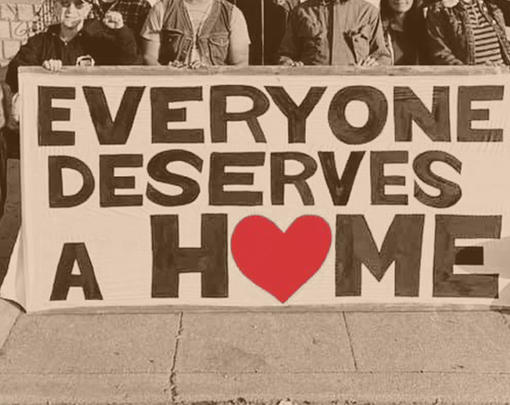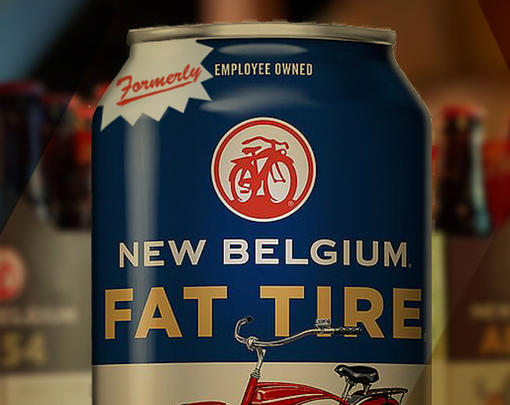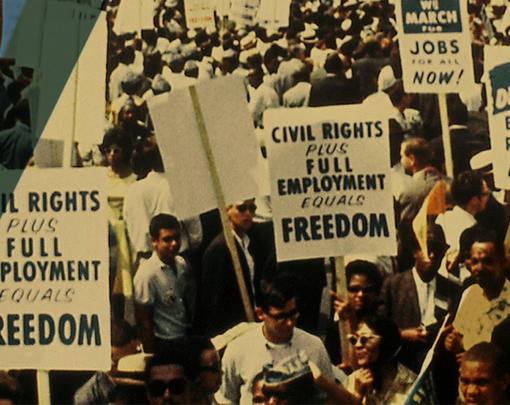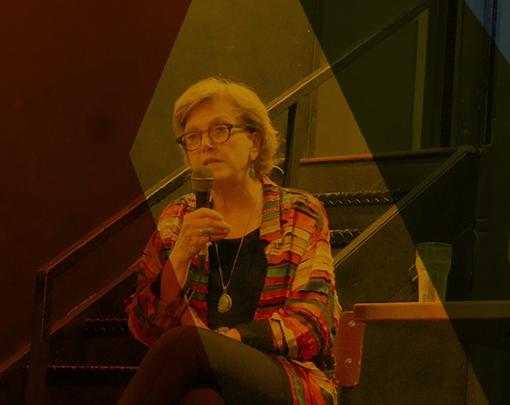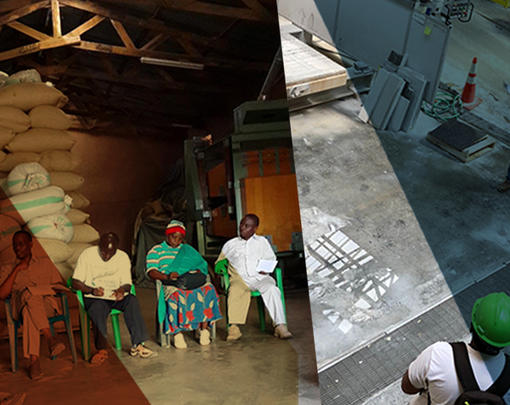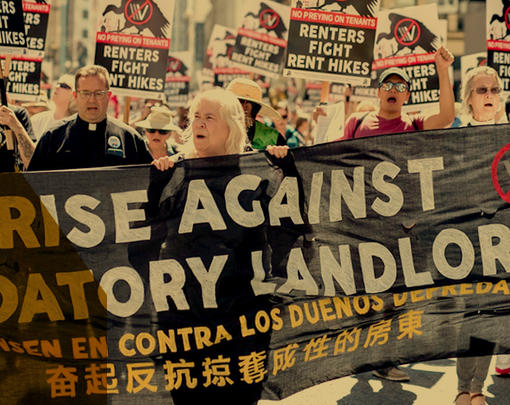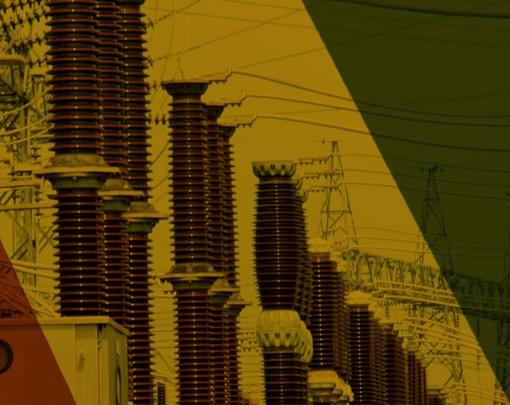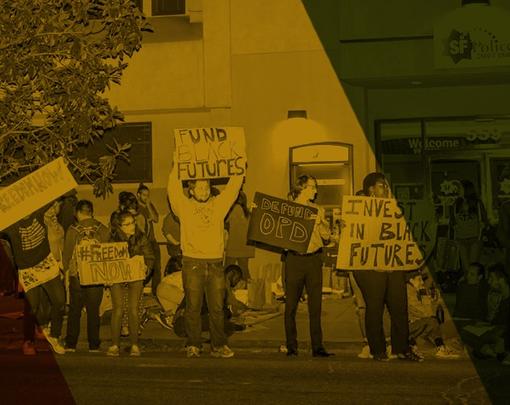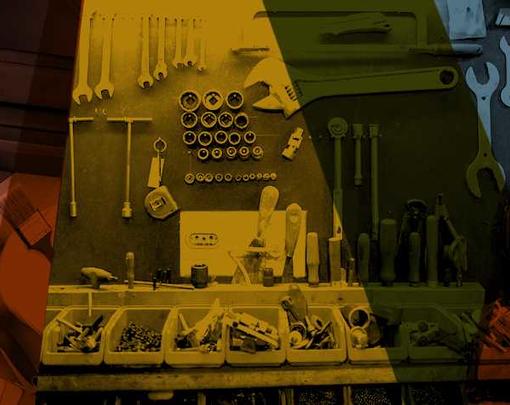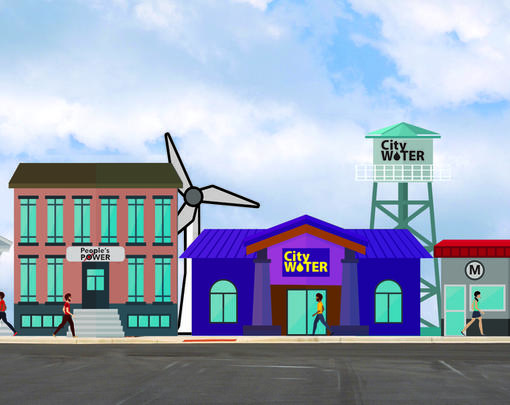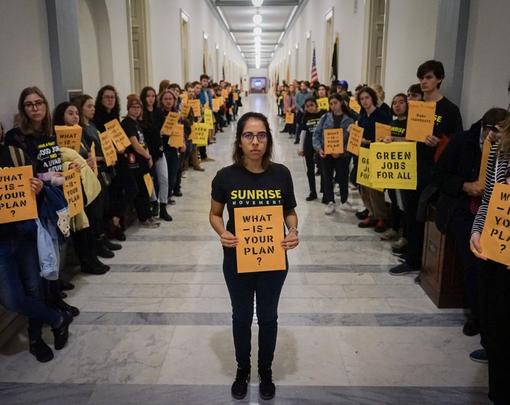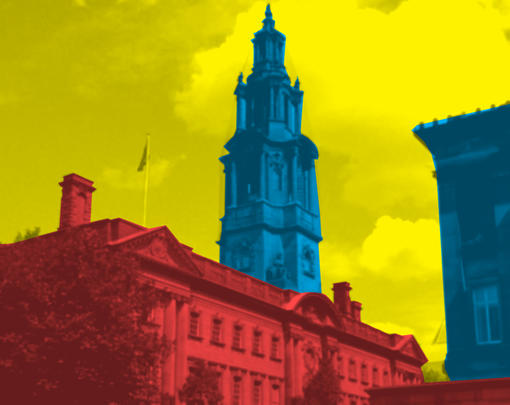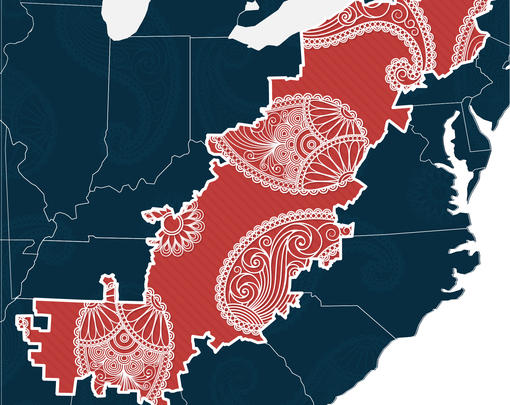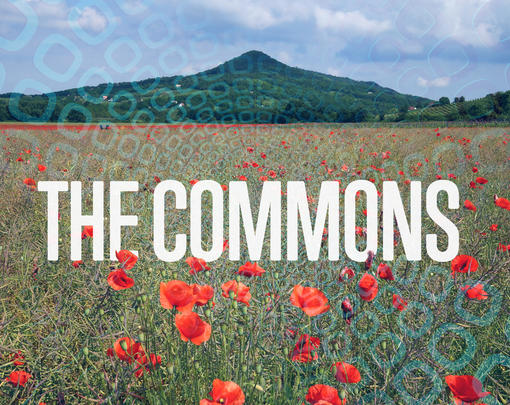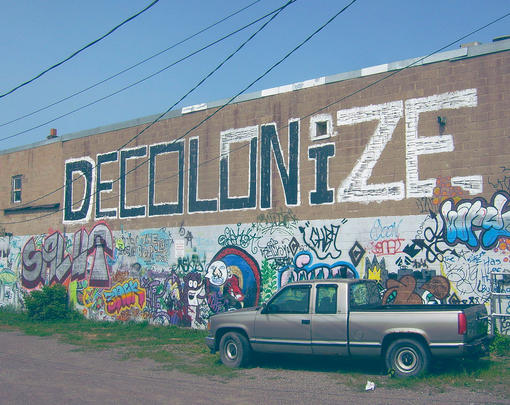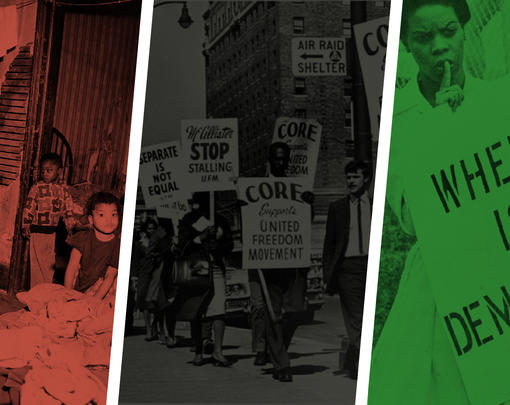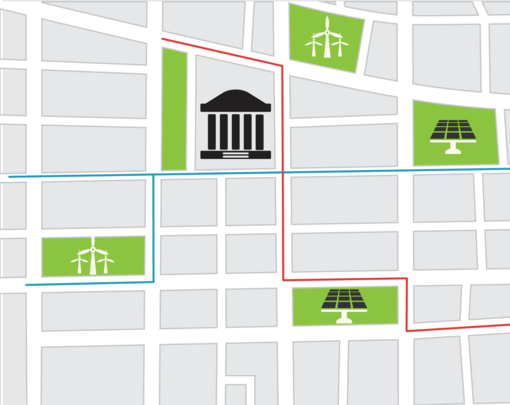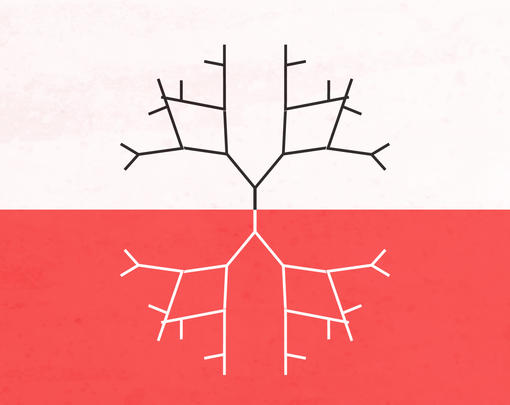This week Esteban Kelly of the United States Federation of Worker Cooperatives joins us to talk about his experience with cooperatives and his perspective on how they fit into a movement for systemic change.
Subscribe to the Next System Podcast via iTunes, Soundcloud, Google Play, Stitcher Radio, or RSS.
Adam Simpson: Welcome to the Next System Podcast. I’m your host, Adam Simpson. This week, our guest is Esteban Kelly. Esteban is the executive director of the US Federation of Worker Cooperatives. He is a co-founder of the cross-sector Philadelphia Area Cooperative Alliance and the Anti-Oppression Resource & Training Alliance, also known as AORTA. He has served on numerous boards and is deeply involved in the solidarity economy and cooperative movements. Esteban, welcome to the Next System Podcast.
Esteban Kelly: Thanks, Adam. It’s nice to be here.
Adam Simpson: It’s great to have you. You do a lot of work with respect to cooperatives, and I wanted to ask: how did you get drawn into working on cooperatives and being in the cooperative movement?
Esteban Kelly: Yeah, so it’s funny. I think a lot of times people think about being involved in cooperatives as a very formal experience of signing up one day and becoming a member and then suddenly getting, I don’t know, an orientation or something that changes your life, and that’s how you become a co-op leader. I think, for me, it happened as kind of a slow burn because I had been involved as a teenager in youth organizing—I wouldn’t call it community organizing, we weren’t quite that smart—but I was involved in a lot of anarchist organizing and different collectives growing up in the suburbs of New York, and we used a lot of the processes and less formal versions of cooperative structures.
I was involved in a group called the Modern Times Collective, which is, of course, defunct nowadays, but it was organized in a spokescouncil model the way that a lot of worker cooperatives nowadays might organize different departments. Say if you have a grocery store that’s worker-run, and you have a separate cheese department, and a produce department, and a department for cashiers on the front end that all might organize in their own committees, that’s kind of the way that we functioned except that we had a women’s collective, and an environmental collective, and an Anti-Racist Action chapter, and a Food Not Bombs chapter, and all those groups would come together, and we would have these general meetings of the collective.
Through that process, I got familiar with the structure and the ways in which it’s both flexible and adaptive, but also can be efficient and empowering, using consensus and getting involved in tricky decisions. Are we going to mobilize to get to this protest in Philadelphia, or how are we using this budget, or how are we responding to the political moment? Are we recruiting new people? It turns out that those are a lot of the same types of questions that come up in cooperative organizing.
When I left New York and moved to California as an undergraduate, I happened to be at UC Berkeley where the largest student housing cooperative in the entire country is located. It’s autonomous from the university—over the course of the last 90 years they have developed a pretty complex ecosystem that’s all owned and operated by students.
Given the high rotation of students involved in that system, we had to create elaborate systems and hire a full-time staff—”grown-ups” whom the students were in charge of—to run all the operations for 1,300 residents plus another couple of hundred boarders who were getting their meals from our student cooperative businesses. We were running industrial kitchens out of our 23 properties, some of which ranged in size from 30 to 50 students living there all the way up to 300 students living in some of the larger apartment complexes, and so we had to perfect a lot of different skills: passing health and kitchen inspections, being up to code, etc.
We developed a whole elaborate system for doing bulk purchasing—we had a warehouse for getting centralized deliveries, almost like our own little mini Amazon that was all operated by the students. The 23 properties would submit their orders. We would centralize that through our kitchen and bulk purchasing department, and then all these giant pallets would show up which we would then break down. My first job as a student when I was 18 years old and I moved into the student housing co-op was as the assistant delivery guy. Myself and another vegan would drive around delivering all the butter, cheese, and milk, and eggs to all the houses on Monday afternoons. That was my formal introduction to cooperatives.
Of course, now with my work around not only worker co-ops, but also as a cross-sector cooperative advocate, I trace all that back to this founding experience. Only years later did I realize that my passion for food co-ops, my interest in shared work and worker co-ops, certainly housing co-ops, and even cooperative education all stem back to this experience that I had at a foundational moment for me that connected together all those different types of industries and that work.
Adam Simpson: Right, right. That’s really interesting that the kind of participatory structures is kind of what led you to the cooperative movement, but I do want to ask about the US Federation of Worker Cooperatives. How would you describe the Federation, and how would you describe its mission and what you do there?
Esteban Kelly: Sure. Well, so the US Federation of Worker Co-ops is fairly straightforward in terms of who were are, which is that we’re the only national grassroots membership-based organization for worker-owned, cooperatively-managed businesses in this country. We work to resource worker co-op businesses through education, training, technical assistance, connecting them to the market, connecting them to financing, and then we also organize those members internally to each other to help them network, share best practices, troubleshoot, get inspiration, leadership, curriculum sharing, financial practices, and other kinds of market and business practices.
Also, to influence the private sector, we try to really push forward what we expect as industry standards because, as worker-centered businesses, we say there is a way to run home healthcare, there’s a way to run restaurants and cafes, there’s a way to run taxi companies and transportation or energy production—all the different kinds of things that our members do—in a way that respects, values, and uplifts workers and also is regenerative and sustainable for them and their families and communities, so we are a social enterprise in that sense. We’re an association of social enterprises.
We also organize those workers—sometimes we call it alt-labor—we’re an alternative form of organized labor, to influence advocacy. We do lobbying. We do education of elected officials. We sponsor legislation at all different levels, city, county, state, and even federal—and we can also endorse candidates’ political platforms either from social movements or from various parties or elected officials. We pull together all of those different things as a way to advance worker ownership, worker cooperatives, and push toward a just, sustainable future that’s inclusive for people of color, other marginalized communities, immigrants, women, people who are queer, gender nonconforming, transgender, and other folks who have traditionally been left out of the economic progress in this country.
Adam Simpson: This is kind of an unfair question, so forgive me, but as director of the Federation, I don’t know that you’re allowed to have a favorite worker co-op, but do you have a particular example that you wanted to share with our listeners, something that you find really inspiring in your work?
Esteban Kelly: I have co-ops that inspire me in each and every industry. Obviously, as a founder and a worker-owner and a member, I am deeply inspired and committed to my own co-op. You mentioned AORTA at the top of the show. As the Anti-Oppression Resource and Training Alliance, we provide facilitation, training, and consulting to solidarity economy, social justice, and cooperative businesses, projects, and movements. Our kind of theory of change is that we can have a larger impact just by resourcing groups who are doing things that we support and believe in and that build a just, sustainable world and by helping people do it better, so we do a fair amount of training the trainers, leadership development, and helping the inside of organizations function as well as their stated mission.
I think, a lot of times, the name of the game, especially in the nonprofit sector, has been all about the mission and that the means to achieving that mission sometimes gets swept under the rug, and so for a lot of what we do in AORTA, we help organizations reflect their values throughout … from soup to nuts, from all the parts of what they’re doing including how they’re internally organized. Oftentimes, that looks like a lot of racial and gender justice work or even education analysis building around class and wealth inside of workplaces, helping to advance healthy workplaces.
Adam Simpson: Is there a key takeaway that you think you’ve learned in working with AORTA that you think is just imperative to share with organizations?
Esteban Kelly: Yeah. Someone might request, “Hey, we want to do a training on racial competency or something,” and we’ll show up and say, “That’s cool, but we bring an intersectional approach to how systems of oppression operate to all the work that we do,” whether it’s a training on financial literacy, a training on strategic planning and visioning, or even just showing up to facilitate somebody’s board retreat or a staff retreat. We’re always going to bring that, and I think that that, in and of itself, shifts everything.
I don’t want to make that sound like it’s something that we innovated, right? We’re standing on the shoulders of, particularly, women of color, feminists of color that have been talking about this work, I think, using similar language, at least for the 25 years, but even before that, this concept of indivisibility, that our identities are indivisible, comes from an African-American tradition that even predates that type of feminist scholarship. All of that, centralizing the interconnected aspects of ourselves, the interconnected nature of how systems of oppression function, that they’re institutionalized, that they’re rooted in cultural values, bringing that analysis and connecting up the ways in which that’s not just a concept that comes out of scholarship and books, but it’s something that’s our lived experience and helps us understand and navigate the world, and so of course that’s going to impact our programs, our operations, the ways that we function, the ways that we build and develop campaigns and partnerships.
As consultants, we’re able to bring that, or as facilitators, we’re able to bring that to a group, and it ends up unlocking a lot of different capacities inside of groups and organizations, so I think that that’s part of how we’ve been able to do what we do. I think part of why I share that so openly is because we’re not trying to corner the market on anything. For AORTA, our hope is that we’re no longer needed at a certain point, that every day, people, communities, leaders, organizations have the skills, the analysis, the empathy, and the care to bring that work themselves and to up their game in terms of leadership, and allyship, and solidarity.
Adam Simpson: I was about to ask about how you think about the concept of economic democracy.
Esteban Kelly: Yeah, absolutely. Typically, people are so conditioned and indoctrinated to accept that we already have democracy. What we have is, of course, valuable and important, but it’s not adequate that we get to practice it a couple times of year when we go to a primary and a general election or maybe inside of certain institutions where you elect your PTA president, or people in your neighborhood association, or something like that. Economic democracy means that this whole other dimension to our society—all the economic activity that envelops our lives and our communities—also has space for people and voice, that we get to make central things beyond profit, and oligarchy, and top-down owning-class values, and actually have more input, control, and voice over the economic part of our lives.
That certainly involves the workplace, which is why I’m really passionate about worker cooperatives, but also consumption, right? For instance, when you’re talking about energy production, and energy consumption, consumers can demand clean, renewable energy as part of the grid. Certainly, a lot of the movement in the ’60s and ’70s in the grocery sector, was, saying we, as consumers, want to be able to control and have more of a voice in having access to natural foods, increasingly local foods, and now there’s, of course, Fair Trade and Direct Trade as part of that. Even on the client end or the end as a patient. Certainly, that’s part of the caring economy as well, elderly people who are receiving elderly home healthcare, youth, and children, and babies that are part of child care or early childhood education.
Economic democracy means that there’s an opportunity for workers, consumers, people all throughout an economic value chain to have control and, ideally, ownership, not just voice and participation but, ideally, ownership in the economic part of our society.
Adam Simpson: I think many people might think of worker cooperatives, for better or worse, as being indicative of radical, anti-capitalist types of politics. While this probably isn’t true in most cases, what does it mean for worker cooperatives to exist within a capitalist context?
Esteban Kelly: Right. That’s interesting. Part of my background also is studying political economy, I was is in a sociocultural anthropology PhD program up at the CUNY graduate center and studied with people like Neil Smith and David Harvey, so my background is in understanding really, really, really what is capitalism, how is it functioning. My pushback to your question is that when it comes to the hegemonic power of capitalism, rhetorically we ascribe much more to capitalism than is actually happening. We have allowed people to conflate the economy—the market, employment, even all of business and enterprise—with capitalism, and the fact of the matter is while each and every one of those things are a component of our economy and of capitalism, they are not synonymous with capitalism, so there is a way to have all those elements and still have socialism, or communism, or anarchism, or something that’s actually agnostic to capitalism.
I like to think that the cooperative economy, while a lot of it is embedded in capitalism, is at minimal at least “acapitalist”, right? So that’s not to say that everything is black and white or everything needs to be either pro-capitalist or anti-capitalist, but there’s actually this really powerful middle, and I think that that’s an opportunity to organize and to shift our economy toward a post-capitalist society by mobilizing a lot of the economic elements, including enterprises, that are actually acapitalist. Why? Partially because capitalism is all about investor ownership rather than community ownership or worker ownership, so it’s investor ownership where you’re taking a surplus of capital, investing it in some economic activity, and trying to extract a profit. Not just a profit. You’re trying to maximize that profit. Not just maximizing that profit, but you’re trying to get an increasing return on investment year after year, so you need to do better next year than you did last year.
This is fundamentally unsustainable, so when you have people who care about ecology, who care about the climate, who care about the environment, who talk critically about capitalism, it’s not that they’re all dyed-in-the-wool socialists, anarchists, or anti-capitalists. It’s just that they’re doing the math and putting two and two together and saying, on a finite planet, we cannot possibly expect to have limited finite resources as inputs and yet have an economic system, which is what capitalism is, that demands an increasing recurring return on that investment. That’s why Marxists say that we are doomed to always be heading toward a crisis, that capitalism assumes—that it must assume—that there’s going to be some sort of crash at some point.
That’s what we know about how capitalism functions, and with worker cooperatives, in particular, I think that we’re better positioned for a post-capitalist society. Why? Well, when all that stuff crashes, who are those investors who are left picking up the pieces, right? We’re not part of the boom-bust cycle of capitalism, so when things are going really well, and there’s all kinds of economic progress, we’re just kind of plodding along and continuing to advance our work, to do better business. We’re not ballooning. There’s no bubbles in the worker-owned cooperative economy. Ideally, we just continue to make progress. Sometimes we don’t make as much progress as other times, but then, suddenly, when there’s that extreme crash or decline, we’re still just there doing our thing.
I experienced this firsthand in Philadelphia when I was a worker owner in a grocery food co-op, and living in a housing cooperative land trust, and also founding AORTA as a worker co-op, and I saw the ways in which those businesses were able to lean on one another and have economic relationships that were tied to one another directly as opposed to the market at large. I don’t actually care whether people are anti-capitalist, acapitalist, or just working on the vision of post-capitalism. Or even if people are pro-capitalist in an uncritical way mostly just because they have been bought into the myth of what capitalism is and, really, what they’re saying is, “I’m pro small businesses, family businesses, local businesses. I’m pro having things work and work well. I’m pro high quality in products, and I don’t want things to just all be these ‘anarchisty’ like the collectives I was part of as a teenager. I want things to be professional.”
I actually see those folks as allies. It’s not that they’re actually deeply invested in Wall Street, investor-owned, publicly-traded corporations, and a return to the ruling class or the owning class and the oligarchic minority or the 1% or whatever kind of languages we want to use. I actually think that there’s a lot of space for those folks to engage in a market orientation, which is just what is this space for exchanging ideas and exchanging products, goods, and services on a fee-for-service basis, which is what AORTA does. It’s what all of our members do at the US Federation of Worker Co-ops.
Adam Simpson: What do you think the barriers are for people when they hear about worker cooperatives?
Esteban Kelly: I think when people hear about worker cooperatives, first of all, there’s this fetishization of like, “whoa, a workplace without a boss.” What does that even look like and mean? But it’s like, actually, no. What we’re doing is just exploding our notion of what the boss is, which is moving beyond this patriarchal idea that “what I say goes,” where there’s no accountability and no mutualism. The fact of the matter is that worker cooperatives are full of bosses all over the place except that, instead of having one boss or instead of having be a hierarchical relationship, you might have someone who’s an expert of a particular sector.
We have members that are in warehousing, and manufacturing, and high-end engineering, and prototyping and still don’t have a one boss. There might be somebody who’s in charge of all the R&D, and they might have co-owners who they are still accountable to. Maybe that person who is heading up or chairing that department has deeper training, or has different types of experience, or just has a different job description where they’re playing more of a coordinating role in pulling together the different research efforts of different folks on their team, allowing the other people to specialize in a particular area about biotech, or lasers, or whatever it is that they’re doing, right?
A lot of times, the myth around worker co-ops is that everything is flat, and that egalitarianism and horizontality needs to mean that everyone is paid the same, that everyone has the same job description, and that we’re kind of a committee of the whole at all times when, actually, worker cooperatives have a tremendous amount of sophistication and an ability to actually out-compete hierarchical firms that are in the same industries, even really large businesses that are doing high-end, or technological, or value-added work.
Worker co-ops have innovated in nontraditional ways of approaching management, management that’s actually accountable to a general assembly of all the workers. Some worker co-ops are even unionized. We don’t see unions as antagonistic in any way. Unions are an important element, especially when you get to scale, of advocating for workers. Unions have a tremendous amount of resources in figuring out things like HR, figuring out things like benefits, workplace disputes, conflict. These are things that come up in worker co-ops of all different sizes.
For the smaller ones, we’re able to provide a tremendous amount of support, and training, leadership development for doing that problem solving, communication, conflict resolution. For some of the larger ones, unions have been one of the great solutions for getting outside help to intervene and set up structures and institutions and even just having someone to lean on in establishing some of the benefits and resources that we come to expect of a larger professional workplace.
Adam Simpson: I want to ask you about the demographics of the worker ownership sector in the United States and how it’s changing. Could you describe what’s going on in this regard?
Esteban Kelly: Yeah. I do want to first make the disclaimer that there are folks who are experts in the employee ownership sector, writ large, so including the ESOPs, right, employee ownership stock programs, and there are many more people involved in employee ownership via ESOPs than worker cooperatives. Something like three million people are members of ESOPs. A lot of them are large firms that are household names and brands that you don’t realize are partially employee-owned.
I think, within that space, only a few of them are 100% employee-owned, and out of the ones that are employee-owned, only some of those are democratically managed and run, firms like New Belgium Brewery that makes Fat Tire Beer and things like that. I can focus on the worker co-op slice of employee ownership and, of course, worker co-ops are also just a subset of all the cooperative businesses in the US, which are even larger than the employee-owned businesses in terms of their economic impact and the number of members and all of that.
Yes, we are smaller—but growing at a tremendous rate. We are mostly women. We’re mostly a feminized workforce, so somewhere around 68 to 70% of the worker-owners in this country are women. We are a plurality Latinx followed by white workers and then other people of color, but combined people of color are a surprising amount—that’s in manufacturing and production, transportation, technology, media, arts, restaurants, and cafes and bars.
I think we’re seeing a lot of growth in different kinds of service sector and caring economy jobs. I started mentioning healthcare, child care, but also domestic labor, everything from home cleaning, tutoring, even landscaping and yard work. Landscaping cooperatives are on the rise in terms of some of the trends. Then we are beginning to see more replication, so co-ops that are not only growing through scaling up but also by either franchising or having their brands replicated in other parts of their local market or even other parts of the country.
Adam Simpson: t’s always interesting to think about the advantages or the kind of “a competing interest” between scaling worker cooperatives and replicating them in terms of getting the movement and the size of the sector to be where we want it to be. Can you talk about the differences between scaling a worker cooperative and replicating worker cooperatives, what the advantages and disadvantages might be there?
Esteban Kelly: Well, so I see replication as a one type of scaling. I see it as a scaling strategy, right? A lot of fast food industries, right now, are franchises, and there’s no question that they have achieved scale, right? It’s not that you have a mega Subway shop or a mega McDonald’s. It’s that you have a proliferation of so many of them all over the country, and one could argue that they’ve saturated the market. I do think that’s one of the ways that we can get to scale is through replication, and I don’t think that there is enough activity happening on that side right now other than some of the expansion by opening up another branch or another shop that’s still owned and controlled by the same board or the same company.
A notable exception is the Arizmendi businesses in the San Francisco Bay Area, most of which run as bakeries. There’s also the Cheese Board Collective, which is a founding and legacy member of the Arizmendi Association, but they’re getting into new work as well, things like landscaping, different kinds of industries. I think that that is one exception where growing through scale through franchising and replication is happening.
I do think that scaling up is important, and I think that part of how we do that is by looking at industries that are scalable, where there are market opportunities for how we do that. We’ve seen this happen in home healthcare with the largest worker co-op in the US which provides elderly home healthcare, they’re based in the south Bronx, called Cooperative Home Care Associates. They did also try to replicate in several parts of the country. I believe the only replication effort that is still around and has endured is Home Care Associates, which is based in Philadelphia and is currently the largest worker co-op here.
I think that there are opportunities in the agricultural sector to organize farm workers. There’s opportunities in the warehousing industry where we’re seeing groups like Walmart and Amazon have a need to work with third-party contractors, so the more that we can create worker co-ops that take and organize labor to form third-party cooperative enterprises that then get contracted out to these larger firms, the more we can grow the sector. Again, this is where I’m saying I understand that there are ways in which that’s fitting into a capitalist niche. There are also ways that we can see that as acapitalist. I would not argue that it’s anti-capitalist to form a sector where you’re going to be primarily doing business with Fortune 500 companies in a globalized economy, but it does allow us to build worker power there. Who knows? Maybe you pivot. Maybe you build that power. Some large corporation collapses, and you still have that opportunity to form your own business. You no longer need to contract with somebody.
That’s why I’m saying I don’t think that it’s a linear path, and I don’t think that purity or dogmatism is going to get us to scale or to a post-capitalist, sustainable, racially and economically just economy, but I do think that there’s a lot of opportunity there in seeing “What does the future of work look like? How can we work with gig and freelance workers?” And”How can we organize in the third-party contractor space at the same time that we are interdependent and in full solidarity with unions, particularly the public sector unions that are increasingly under attack?”
These are all things that we absolutely still need as a component of a “new economy.” I don’t think “new” needs to mean that it’s entirely new and we’re leaving behind or abandoning strategies for traditional organized labor. I think that those things needs to happen in sync and in lockstep and that we can only build and sustain power by being linked up with one another.
Adam Simpson: When it comes to our current system of capitalism, there are massive firms like Amazon that are streamlined through processes that, while exploitative of people and, certainly, the environment, make them more competitive. How do worker cooperatives keep pace in such an environment where not just industries but entire supply chains, seemingly, are being monopolized by large businesses? Can worker-owned firms survive in this type of a climate?
Esteban Kelly: I think there’s an opportunity not just to survive but to thrive. When we see monopoly, it’s not covering the entirety of a value chain. In fact, what we’re seeing is increasingly subsidiarization and, like I was just mentioning, third-party contractors. If, in fact, that model was more advantageous, competitive, and sustainable, then Walmart would own all of the farms as well as the distribution and the retail space. The majority of their workers, in the case of Walmart, are third-party contractors, right? So there actually is an opportunity.
Because of subsidiaries, spin-offs, and sourcing, and procurement, I think there’s a particular strategy for worker cooperatives, and employee ownership, and even organizing farm workers to be their own firms, build up their own power, maybe interface into that value chain and tap into that market potential and, ultimately, use that as a power base, as I was starting to say, to push back or even to displace some of these large firms.
What we’re seeing is monopoly in terms of the super structure, that Amazon gets to dictate, “What is the quality of products that we’re going to distribute through scale? What are the types of products that we’re distributing? What’s the mechanism through which that distribution is happening?” Right? They’re almost becoming like the Uber of products and things, right? But Uber doesn’t actually own the cars. They don’t actually own the worker. They don’t own any of that stuff. They’re really just the platform, so that’s a very 21st century economic prospect, so I think we need to start thinking in adaptive ways about how do we fit into that? What’s the opportunity to organize?
I think that, in that context, part of the competitive advantage is that, certainly, smaller firms, not just worker cooperative ones, but family businesses, independent ventures, have an opportunity to be more local, to be able to communicate more about who they are, about how they do what they do, where they’re sourcing from to have more transparency in their products, and tell that story to consumers.
There’s a study recently from the Center for American Progress that talks about all the different of brands, whether it’s local, organic, Fair Trade, cruelty-free, not animal tested, etc. There was one that talked about being employee-owned, and it turned out that knowing that something was ethically made, in terms of how the workers were treated, was far and way the most important brand in terms of consumers, and we have yet to capitalize on that. We have yet to really work on that data, and pivot toward the market, and tell our story in a way that’s resounding and compelling, but we know that worker co-ops have a gigantic advantage, as do family-owned businesses, if there’s a way to communicate that value to consumers and to the market.
Adam Simpson: That’s a really interesting point that people want to support employee-owned businesses. What about other opportunities for growing the cooperative sector? What do you think the most promising strategies are? I know there’s been a lot of talk about conversions, especially with the Boomer generation retiring soon, but I where does the federation place a lot of its energy in terms of the promising strategies?
Esteban Kelly: I would be remiss not to give a shout-out to our nonprofit partners. We spun off five years ago an organization called the Democracy at Work Institute (DAWI), which is our nonprofit R&D shop. I would say it’s research and development more in the sense of applied research. I mean DAWI really tests out things through piloting, through partnerships, and really pushing innovation into the field all over the country, and so DAWI is focusing on several different types of strategies.
We, as the worker co-op federation, are really trying to be there as generalists and as partners in all the different spaces, so because we have workers doing everything from platform co-ops, franchising co-ops, new members that are startups, new members that are conversions, to businesses that are organized around returning citizens, people who were formerly incarcerated who often are discriminated against or facing stigma or who aren’t able to get access to employment because of the barriers for people reentering society. We are involved in, scaling up, replication, a lot of sustainable business opportunities, value chain things, even linking together cooperative businesses with each other.
You asked earlier what one of my favorite businesses are, cooperative businesses or examples, and there’s a worker co-op, actually, that served on our board for several years called Opportunity Threads. They are in the textile industry on the production side, they are a worker-owned cut-and-sew shop that’s based in western North Carolina.
Now, what’s significant about that place? Well, not only is it significant because of the workers are as primarily Latinx, people who are involved in the sewing, and the cutting, and the design, and making things like bags, and tee-shirts, and quilts, and blankets, but western North Carolina historically had a textile industry, right? It was located in the middle of the East Coast, so you would produce things in these textile factories, stick them on trains, and you could ship all the way down to the South, all the way down to Miami, all the way up to Quebec even, right?
That was a strategic industry, and through deindustrialization, a lot of those factories were shut down, so I’m inspired by what they’re doing there because they’re reopening—on a much smaller scale, of course—a lot of these textile factories in western North Carolina, bringing in the worker ownership opportunity. They’re creating jobs and worker ownership in that sector and in their region, and then they’re linking it together with other cooperatives, so they’re shipping their tee-shirts and their cloth bags to other cooperatives, like silk screening co-ops who can then take a tee-shirt and put a brand on it, put a design on it, and then those co-ops are then shipping their products to retail establishments. When we have our tee-shirts that say, “Think outside the boss,” and our great logo for the US Federation of Worker Co-ops, the way those shirts are manufactured involve multiple layers of worker cooperatives.
They’re made at different scales by our own members, and we’re able to then sell them to other members of ours or to movement partners. They’re also making shopping bags for food co-ops, so you can have a food co-op like the Park Slope Co-op that has their logo on it. They can sell it to members because they want to, of course, encourage sustainable practices, less waste. They don’t want plastic bags, certainly, but they also don’t want the paper bags constantly, so they’re able to both imprint their own identity and pride for their consumer members in Park Slope, but they’re also supporting the silk screening co-ops that printed their logo. They’re supporting Opportunity Threads as a co-op that makes their bags. This is something that we’re increasingly seeing opportunities for in a lot of different types of industries.
Adam Simpson: One of the key issues of the 21st century is that of climate change. Too often in our mainstream discourse, there’s a disconnect. The economy is seen as kind of a separate entity from the environment. What can worker cooperatives do to drive change toward more sustainable delivery of goods and services?
Esteban Kelly: I mean we just started talking about things like distribution, warehousing, even sourcing, right, through agricultural production and our relationship to the land, which is something that my members are increasingly getting involved in, partnering with groups like the Federation of Southern Co-ops, and various land trusts, and movements for community ownership.
I think that it also circles back to your initial question around capitalism. A lot of thinkers, I think, most prominently, Naomi Klein, have been talking about ways in which the climate crisis is a climate crisis of capitalism. That is the endgame of capitalism where profit maximization means that a lot of waste is just dumped out into the environment, and it’s seen as external, and there’s no costs toward that, and that’s partially because of a lack of regulation from the government but also because of a profit maximization incentive.
I think, at the fundamental level, it already is a paradigm shift, that worker co-ops have already shifted the paradigm because we are worker-owned. When you’re serving your shareholders, and they’re primarily interested in saying, “My only investment here is capital. It’s money that I put in, and I want to see a return on that investment, and I don’t care about anything else. I don’t even care about what industry you’re doing.”—that’s a problem. Think about mutual funds where you’re aggregating a bunch of different shares spread out over a whole bunch of different industries. The only things that matters to the investor is the return on their investment. They don’t even know or care how much of it is in pharmaceutical, or energy production, or whatever.
Worker co-ops, fundamentally, are already about shifting this dynamic, when your only shareholders are the people who work there, suddenly, you’re not driven by a motive of maximizing your profit. Suddenly, you start caring what’s your reputation in your neighborhood? How are you treating your workers? You’re motivated, not so much for what is the profit at the end of the year, but you are happy even if you barely make a profit but you’re able to pay everyone better or give everyone better, more comprehensive, more holistic healthcare, or stipends for child care, or paid sabbaticals and leaves of absence, more vacation time, better equipment, all of those things, shorter work days.
You can think much more comprehensively about all the different things including who you’re sourcing from, right? You can choose, maybe, someone who is providing some of the raw material for your business who might … it might cost a little more. You might choose to get your energy from a sustainable energy company that’s using solar, wind, or other kinds of renewables, whereas a traditional investor-owned business it might just be like, “Well, what’s cheapest? I’m going for fossil fuels?”
I think that that already is a paradigm shift. I don’t think that we get to necessarily realize that and perceive it until worker ownership comes to scale, right? Then we start seeing what does it look like when the center and the beating heart of our economy are workers and, to a certain extent, consumers, as opposed to investors?
Adam Simpson: Absolutely, absolutely. Well, Esteban, that brings us to about time. I just want to thank you again for joining us on the Next System Podcast. It was a great discussion, and I look forward to sharing it.
Esteban Kelly: Thanks so much for having me. This was so much fun.
Adam Simpson: Absolutely. For the listeners, we’ll catch you next time on the Next System Podcast.




